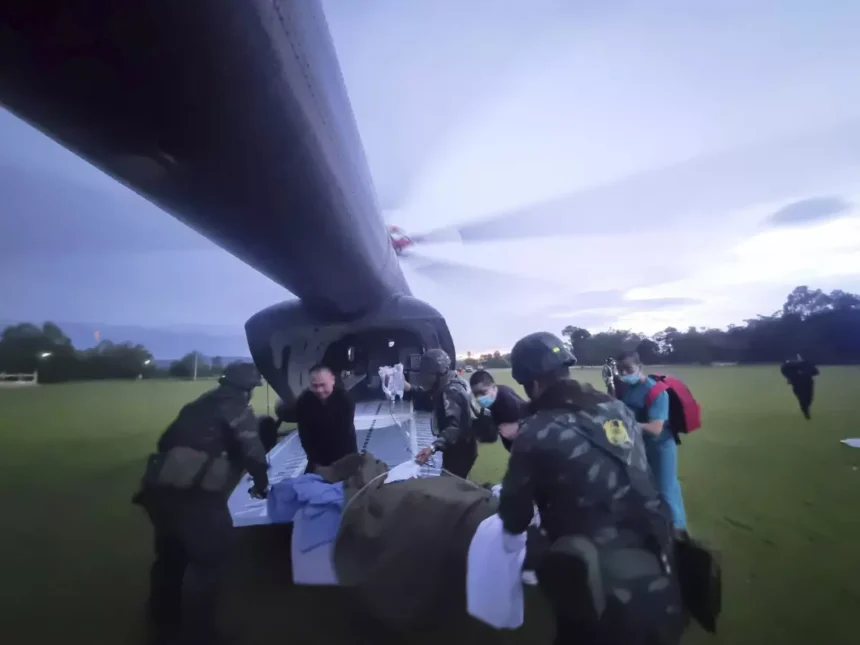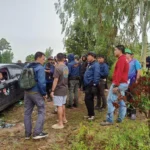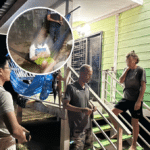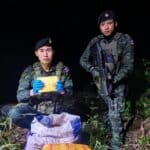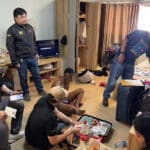BANGKOK – Relations between Thailand and Cambodia have broken down after a landmine exploded near the Chong An Ma border crossing in Ubon Ratchathani on 23 July 2025. Five Thai soldiers were hurt in the blast, and one lost a leg.
Thailand blames Cambodia for planting the Russian-made PMN-2 anti-personnel mines and says this is a clear breach of the Ottawa Treaty, which both countries signed. In response, Thailand withdrew its ambassador from Phnom Penh, expelled Cambodia’s top diplomat from Bangkok, and ended diplomatic contact.
The fallout has worsened an old border dispute and sparked a crisis at home, with Prime Minister Paetongtarn Shinawatra now suspended as anger grows inside Thailand.
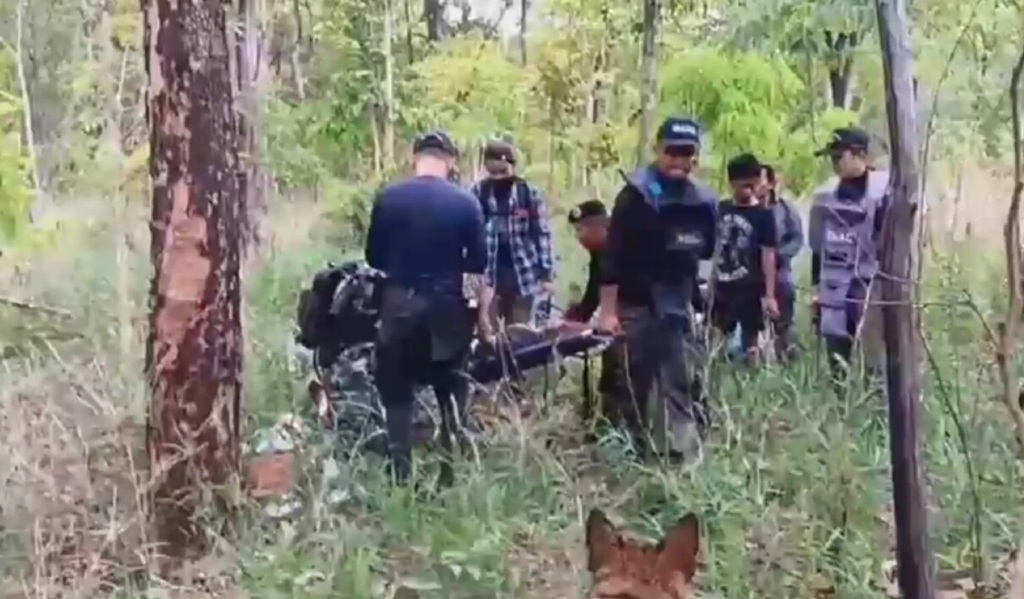
Landmine Blast Sparks Diplomatic Crisis
The explosion happened in the disputed Chong Bok area, where the borders of Thailand, Cambodia, and Laos meet. On 23 July, soldiers from the Suranaree Task Force were patrolling when one stepped on a mine.
The blast cost him a leg, while others suffered hearing and chest injuries. Thai officials quickly accused Cambodia of laying new mines, saying the act broke the 1997 Ottawa Convention that bans such weapons. Both governments are parties to this treaty, making the charge even more serious.
Thailand’s Ministry of Foreign Affairs said the mines found were not Thai and claimed there was strong evidence they were recently put in place. The ministry called this a “blatant violation of international law” and filed a formal complaint to the Ottawa Convention. Thai officials are speaking to other countries, like Japan and Norway, to gather support.
Cambodia denies it planted the mines. The Cambodian Mine Action and Victim Assistance Authority said Thailand’s accusations are “baseless” and pointed to Cambodia’s long battle with landmines during its war. Cambodia also hosted the 2024 summit on a mine-free world.
Cambodia’s Foreign Ministry claims the Thai soldiers left the agreed patrol path and entered Cambodian land, where old mines and unexploded bombs remain from past conflicts.
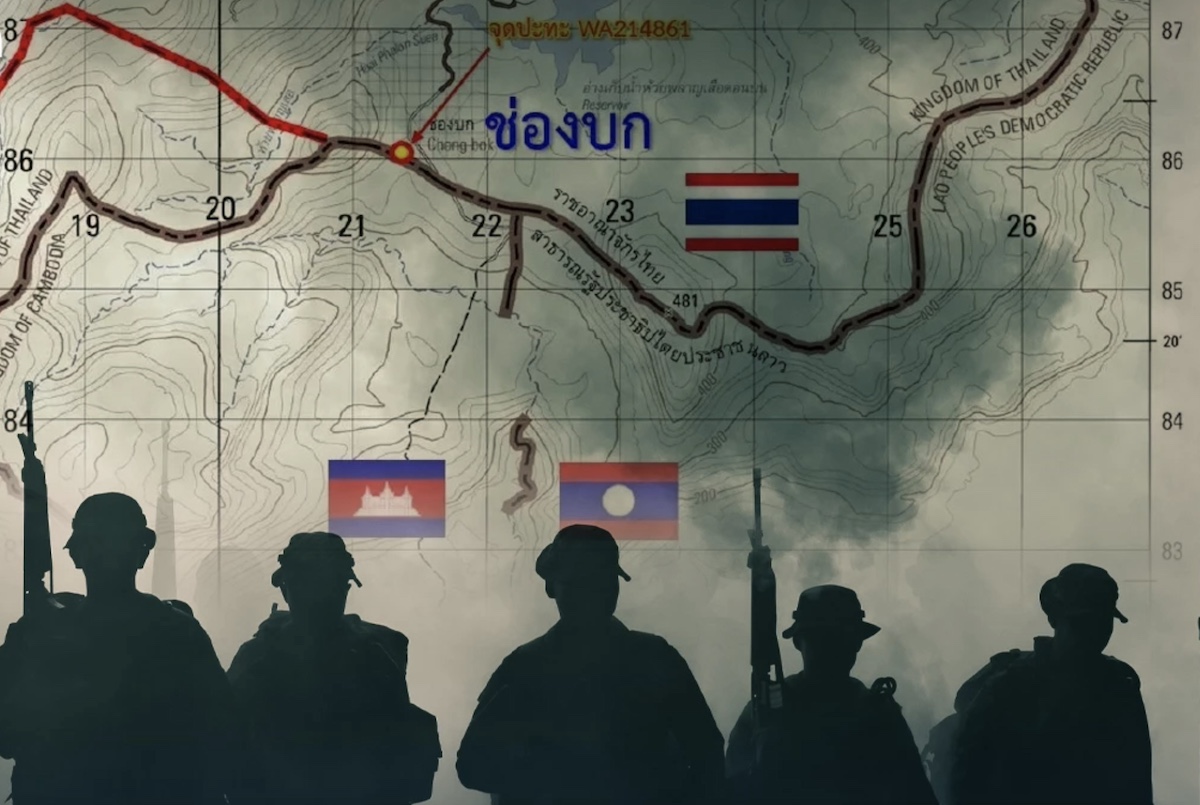
Border Disputes Span Decades
The Chong An Ma incident is only the latest event in a century of arguments over the border, most famously around the Preah Vihear Temple, which the International Court of Justice awarded to Cambodia in 1962.
Many Thais still resent this ruling. Other hotspots include Ta Moan Thom, Ta Moan Toch, and Ta Kra Bei. The Emerald Triangle, with its rough history, has seen several clashes, including a gunfight on 28 May 2025, where a Cambodian soldier died.
These arguments trace back to the old colonial border between Thailand (then Siam) and Cambodia when it was controlled by France. Thailand says the court has only a limited role and wants direct talks to settle disagreements, while Cambodia looks to international rulings.
After landmines were found—eight on 19 July and two more on 20 July—Thai officials said Cambodia was only trying to provoke. Thai military leaders, including Lieutenant General Boonsin Padklang, reject any claim that Thai troops planted the mines, saying no army would risk its people.
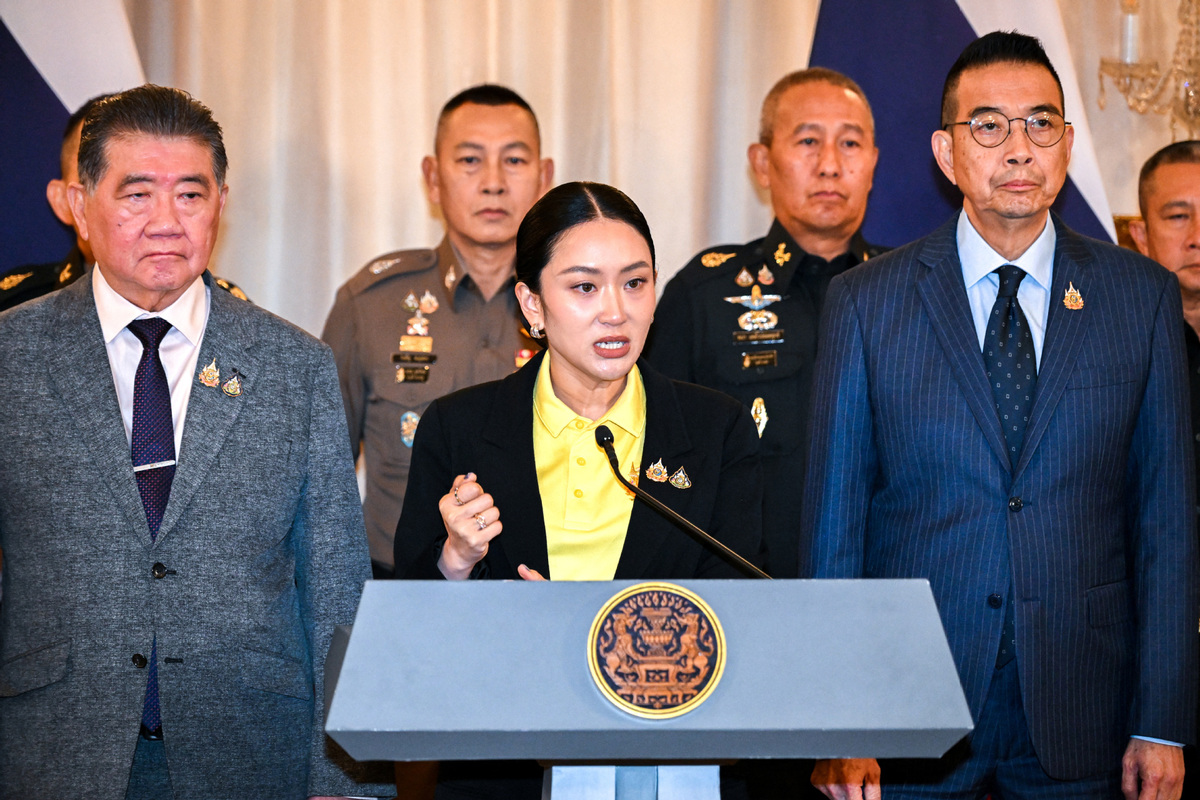
Political Turmoil in Thailand
This border crisis has caused turbulence inside Thailand. Prime Minister Paetongtarn Shinawatra was suspended on 1 July 2025 while officials probe a leaked phone call. In the call, she seemed to criticize a Thai military officer and speak deferentially to former Cambodian leader Hun Sen.
The recording, thought to have been leaked by Cambodia, sparked rage at home and led to claims that Paetongtarn had undermined Thai sovereignty. Former Prime Minister Thaksin Shinawatra, her father, is under fire too, as the public remembers his close ties with Hun Sen.
The row has shaken Paetongtarn’s government, already weakened when coalition partner Bhumjaithai quit on 18 June. Anti-Shinawatra protesters, also known as “yellow shirts,” have returned to the streets.
They recall the coups of 2006 and 2014 that ousted both Thaksin and his sister Yingluck. Critics say Paetongtarn has mishandled the border crisis, while her supporters believe she is being targeted by political enemies.
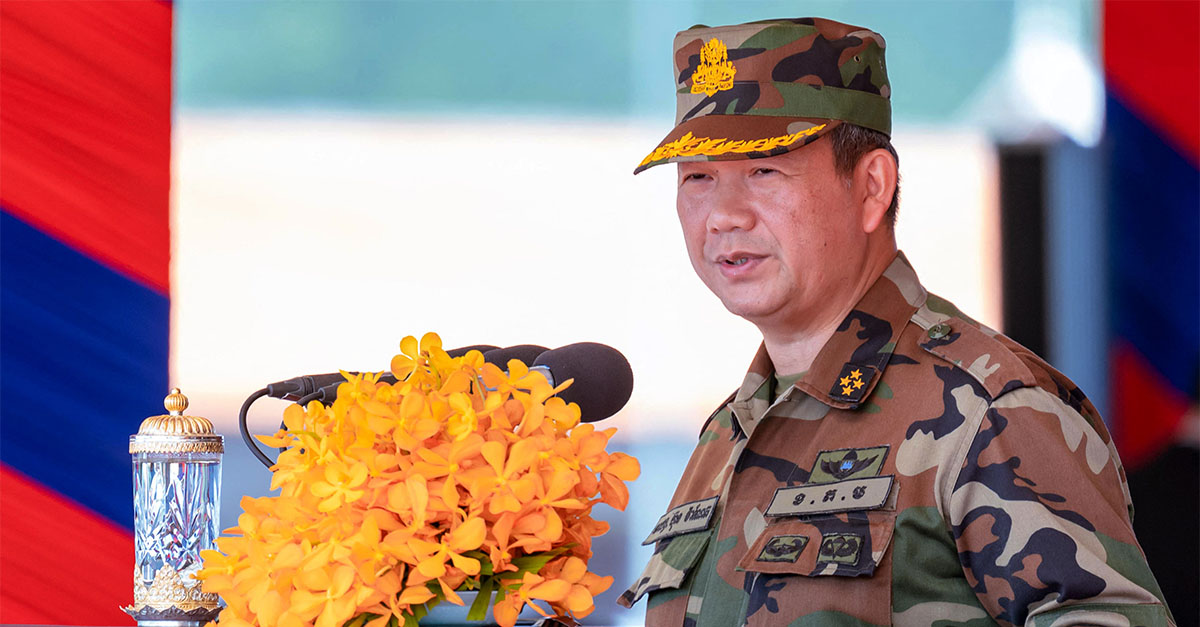
Hun Sen and Cambodia’s Conscription Plans
Hun Sen, former Prime Minister and now President of the Senate in Cambodia, remains a strong voice in this dispute. His public clashes with Thaksin Shinawatra and threats to release private tapes have added fuel to the fire.
On 16 July 2025, Hun Sen’s son, current Prime Minister Hun Manet, announced that Cambodia would bring back military conscription in 2026, citing tension with Thailand. Cambodia also plans to raise its defence budget, which has many worried about increasing militarisation.
Hun Sen’s actions, including leaking the phone call with Paetongtarn, are seen by some in Thailand as an attempt to destabilize the Thai government. Some analysts think Hun Sen wants to use rising nationalism in Cambodia to tighten his family’s political hold, while also taking advantage of Thailand’s divisions.
Cambodia continues to insist it did not plant the mines and accuses Thai troops of wandering into dangerous old minefields.
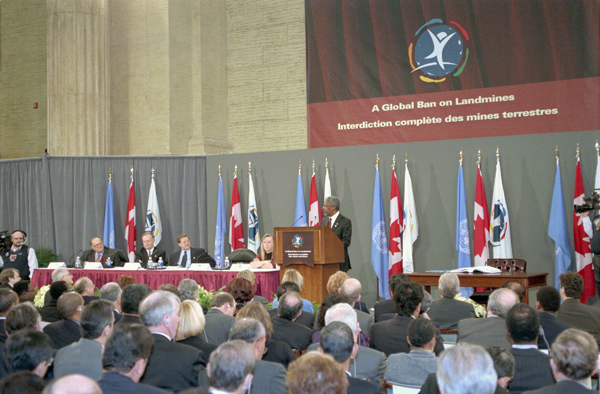
Next Steps for Thailand
Thailand now faces tough choices. The Royal Thai Army has ramped up mine clearance in the Chong Bok area, where engineers from the Suranaree Task Force are working to clear nearly 100 remaining mines.
Diplomatically, Thailand is collecting evidence—including apparent video of a Cambodian soldier laying a TM-57 mine—and is asking international partners for support.
Militarily, Thailand has stepped up patrols and tightened checks at border crossings. Army Chief General Pana Klaewplodthuk wants to avoid making the situation worse. Some suggest fencing the disputed areas, but Cambodia has rejected this idea, so progress looks unlikely.
Thai authorities are also considering trade restrictions targeting Cambodia’s suspected illegal activity networks.
Working together to investigate the mines was one solution offered by Cambodia, but trust is almost gone on both sides. Pressure from Thai and Cambodian nationalists makes calm discussion even harder.
China’s Foreign Minister Wang Yi has offered to help mediate as suggested at a recent ASEAN summit, but Thailand appears to prefer direct talks rather than bringing in outside parties.
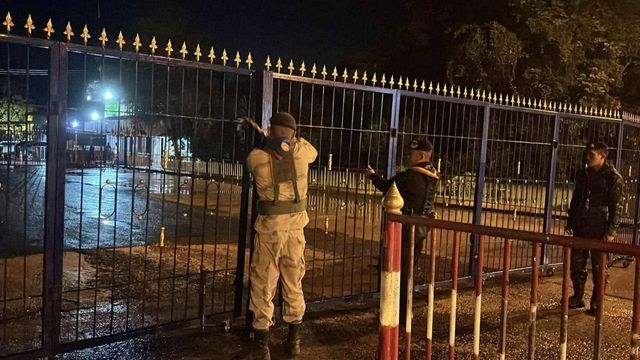
Regional Impact and Economic Worries
The diplomatic breakdown is straining the region. The conflict has stalled economic activities, with Cambodia banning Thai-produced fuel, gas, and farm goods, and Thailand closing key crossings in Ubon Ratchathani, Surin, Buriram, and nearby provinces.
Local economies that depend on border trade have been hit the hardest, and Thailand’s $3 billion trade surplus with Cambodia from 2024 is now at risk.
Thailand is preparing to take its case to the United Nations, and world leaders are paying close attention. The events will show how effective the Ottawa Convention and ASEAN are at keeping the peace.
Right now, the border is tense, with Thai engineers clearing mines while both nations weigh how to move forward. Both Thailand and Cambodia face a choice: return to talks and try to reduce tension, or risk seeing the situation get worse as mistrust and old issues take hold.
Related News:
Thailand Pursues UN Action Against Cambodia Over Landmines




